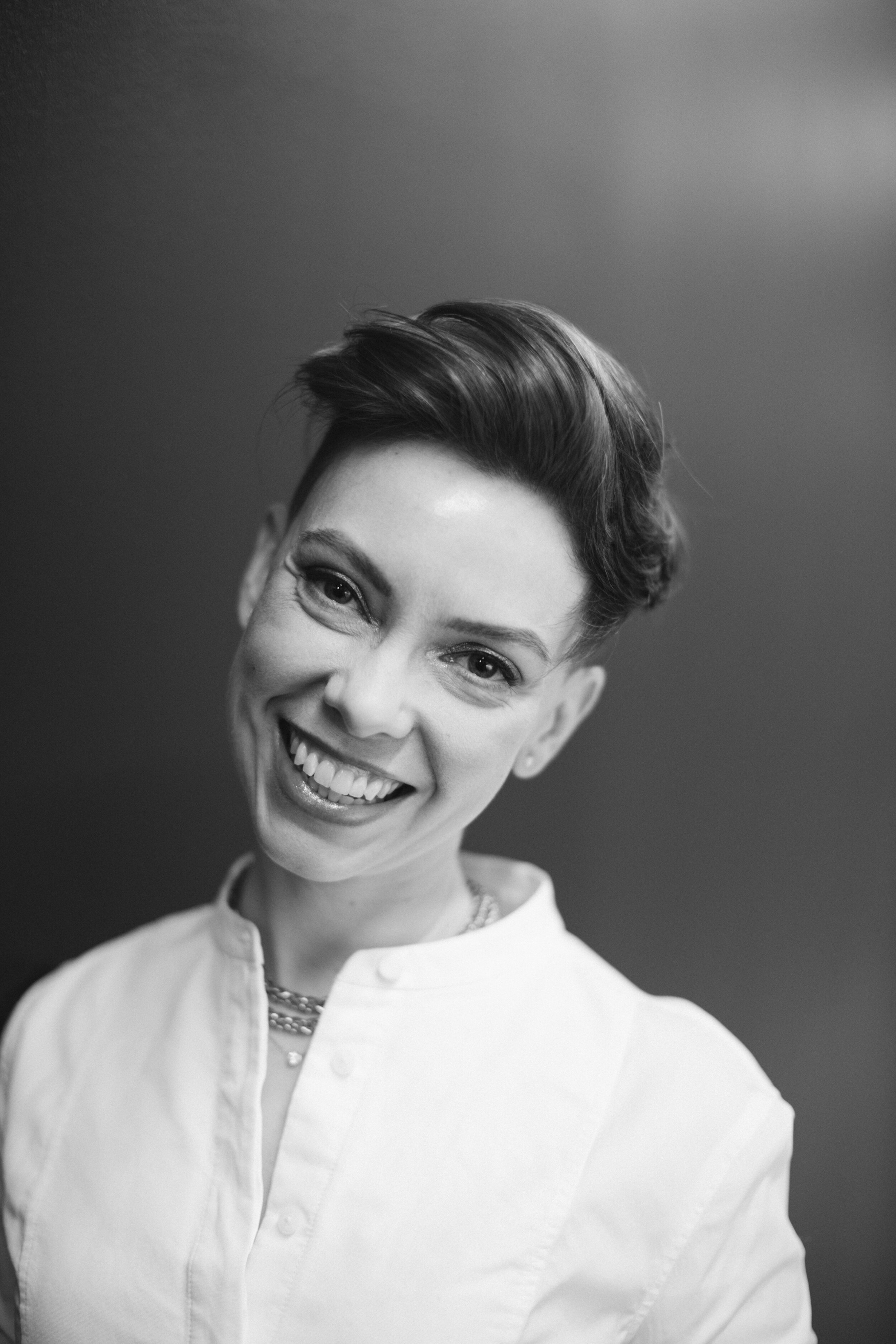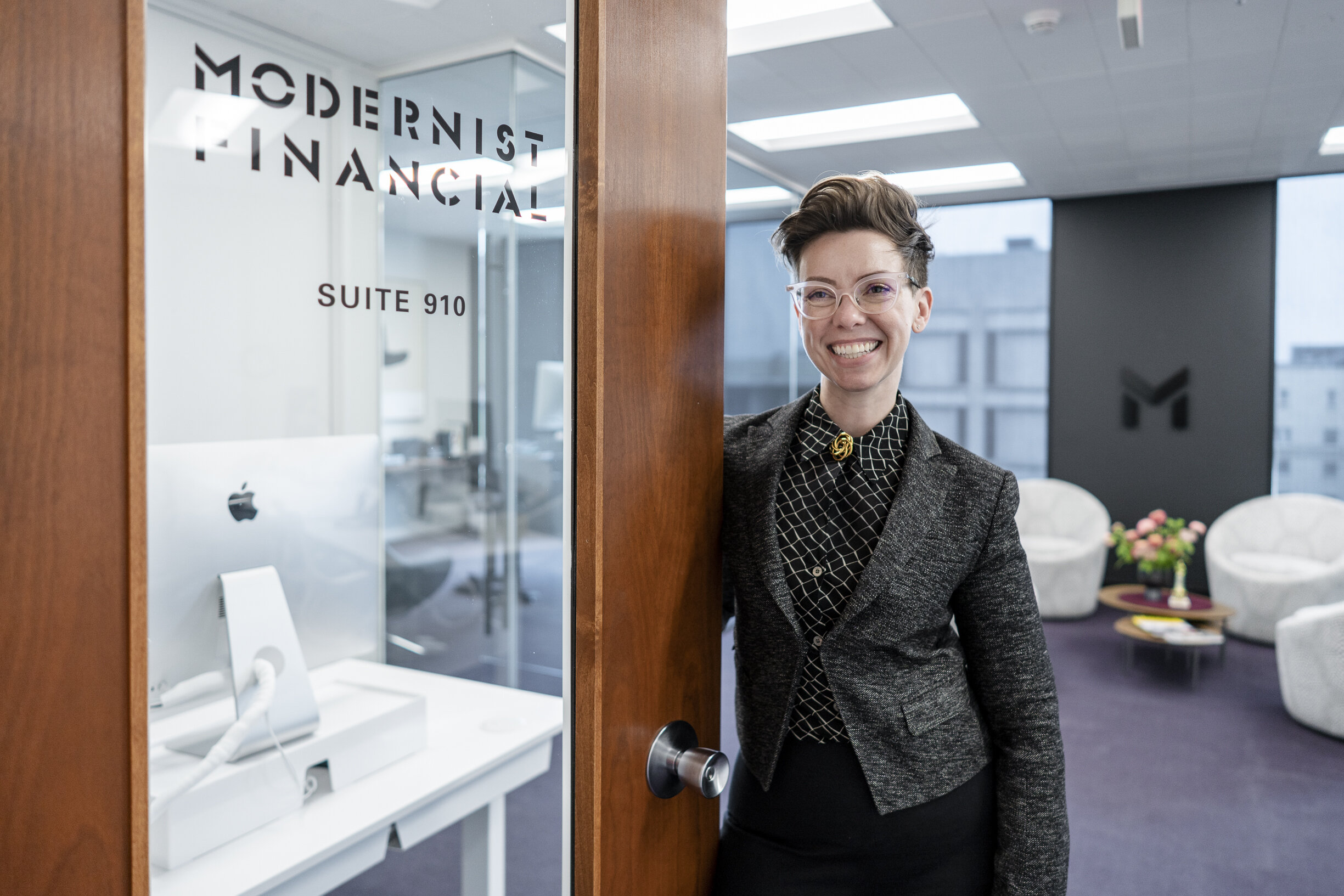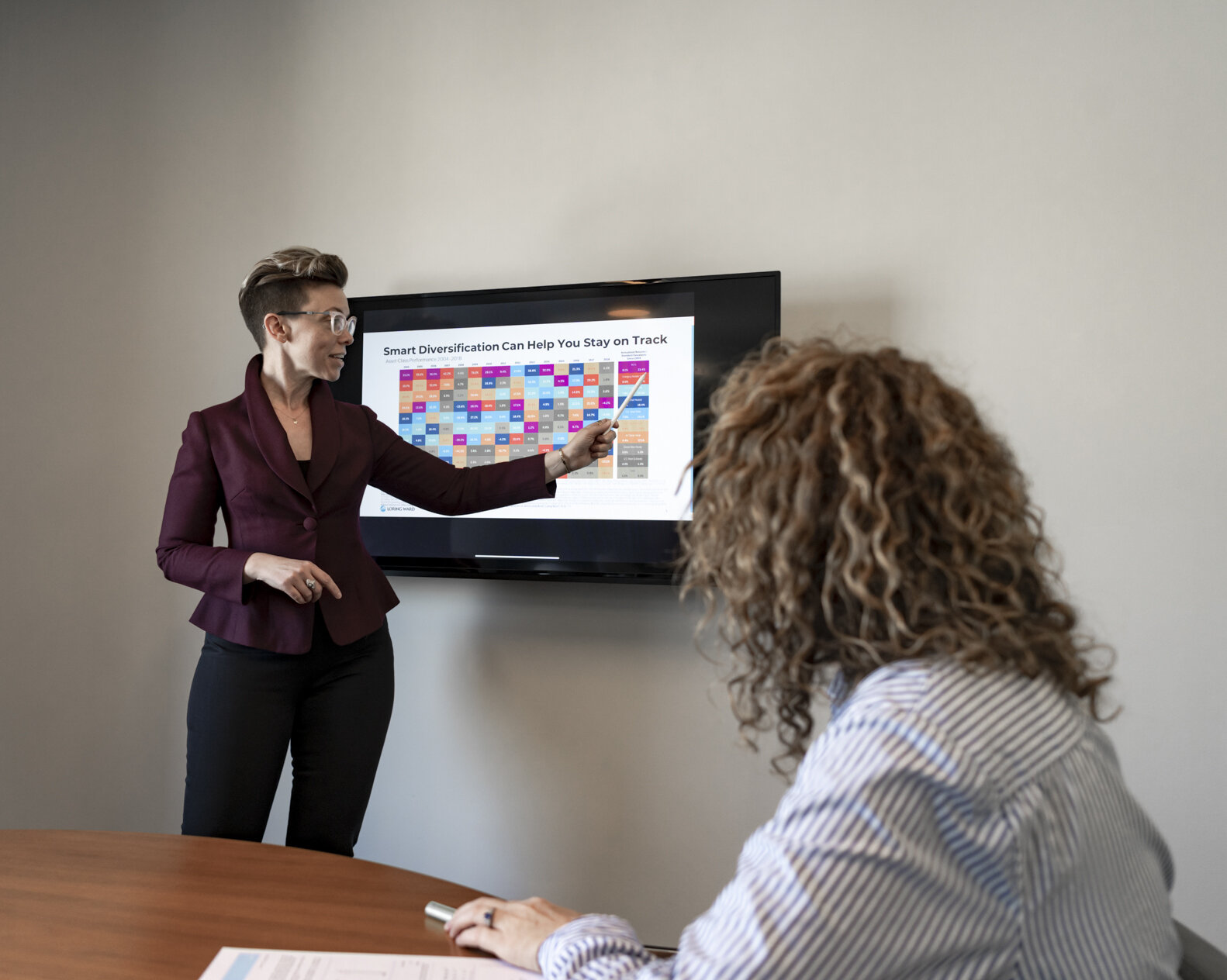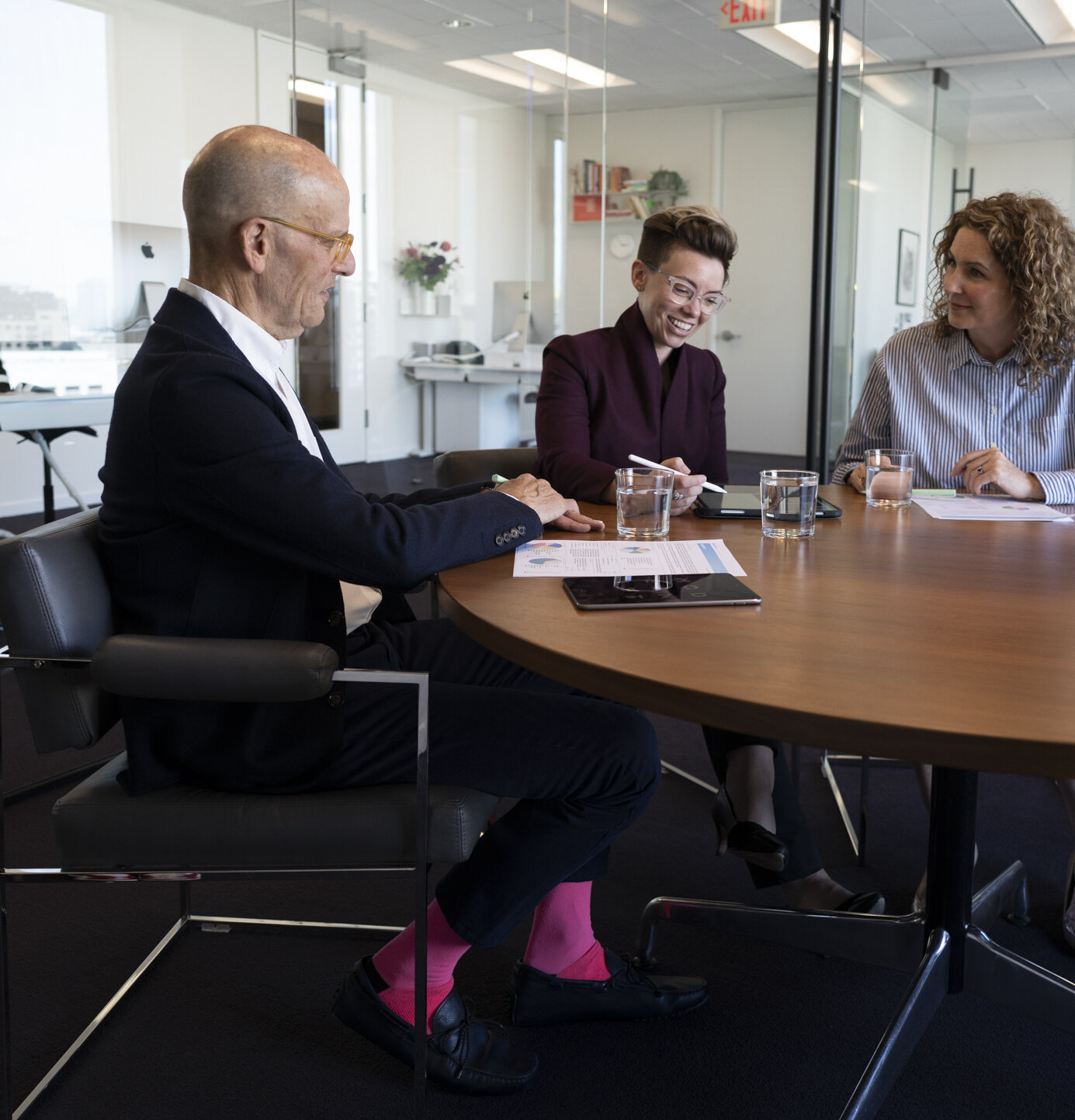A crash course in how creatives can manage and master money with Modernist Financial’s Georgia Lee Hussey CFP®
When all her friends seemed to be buying houses, sculptor and novelist Georgia Lee Hussey took the plunge. She quickly realized how much she didn’t know about home ownership, credit scores, and adjustable mortgages- and how much it was going to cost her. But the way out of the debacle was also the way in to the career she never knew she always wanted.
Georgia’s Money Story:
Georgia Lee Hussey:
Well, thank you so much. It's fun to be able to talk about money stories, my favorite topic.
Bobbi Rebell:
let's get into that now. It has to do with your first real estate purchase, you were just 27 years old. Tell us your money story.
Georgia Lee Hussey:
Sure. So, when I moved back to Portland from New York, I thought, well, I want to move back and I want to buy a house because everybody I know is buying houses. And they were telling me how it easy it was and how great it was and how much the values of the houses were going up. And it seemed too good to be true, and as we know, things that are too good to be true often are.
Georgia Lee Hussey:
And so I qualified for a mortgage ... You'll love this. I had a five 50 credit score, I had no money down and I had two loans. So I had one loan that I had a seven and a half percent fixed rate and then a second loan at an 11 and a half percent adjustable rate. And I literally did not know what any of that meant. So the process of buying this home as a single person and trying to figure out how to make the cash flow for that work when I was working basically a high-end sales job with irregular income, was quite an awakening to what it meant to be a financial grownup.
Bobbi Rebell:
When you were getting this loan, did the loan salesperson, for lack of a better word, did they explain any of this to you?
Georgia Lee Hussey:
You know, they may have, but it was such a blur because everything was new. I didn't know what any of the terms really meant. I'd never been around somebody who bought a house before. And I'm a pretty smart person and savvy, but not in the world of finance. So they may have explained it to me, but I was surprised two years later when I was trying to figure out what to do with the house and that I was going to have an adjustable rate. I literally didn't understand that about-
Bobbi Rebell:
How long was it before it adjusted?
Georgia Lee Hussey:
I think I had ... It was a three year ARM.
Bobbi Rebell:
That's short. Wow.
Georgia Lee Hussey:
Ugh, God. As a CFP it just makes me cringe inside to think about that. Although I was very lucky, thanks to a lot of privilege to be able to get out of that house.
Bobbi Rebell:
So how did it play out? So you're in this house, it becomes pretty clear that with your irregular income from a sales job, this is not sustainable. What happens?
Georgia Lee Hussey:
Sure. So I did all the scrappy, punk rock, arty things that I had always done. I got renters, I rented my garage, I rented the extra bedrooms, I did work trade with people to paint it. And I was working in modern interior design, that's how I leveraged my sculpture background. And so I can make it look really good. So I was really leveraging the resources in my community, in my friend group to be able to do that.
Georgia Lee Hussey:
But as I was realizing the extent of the problem of not understanding how to budget really, because nobody I'd ever been around had budgeted. I started learning everything I could from basically personal finance blogs, which were the equivalent of personal finance podcasts in the early [inaudible 00:06:11]. And I realized how much structural ignorance I had about how money operated and how mortgages worked and how taxes worked. And so I just started teaching myself everything I could. And talking to my friends about it, because I was really surprised by how little I understood. And then I started talking with my friends and they were really ashamed that they didn't know either.
Georgia Lee Hussey:
And that's really what struck me, was that these incredibly intelligent, successful creatives were as dumbfounded as I was by money. And I realized that nobody had taught us anything about money. And I think that's pretty intersectional. A lot of my friends were female, a lot of my friends were queer, a lot of my friends were creatives or artists of one kind or another. And all of us in our individual groups, has been disenfranchised from the world of wealth and wealth accumulation for a variety of reasons and a variety of money stories.
Georgia Lee Hussey:
And so that really is what lit the fire under me to become a CFP, because I realized there were so many people who were being excluded from the financial world of stability and safety. And so I realized there had to be some job that did this. I was looking for a career change anyway, and I really loved the analytical element of money and the creativity of problem solving, which ... It's basically, my joke is that financial planning is exactly the same as installation sculpture, but it's just instead of using money, you're using clementines or glass or whatever your medium of choices.
Bobbi Rebell:
So wait, what happened with the house?
Georgia Lee Hussey:
So, I had the house for three years, that was when I was starting to learn about the personal residency exclusion.
Bobbi Rebell:
What does that mean?
Georgia Lee Hussey:
Yeah, so if you own a house and it's your personal residence and you sell it and you've lived in it, you are able to not have to take the gains on the sale. So there's a $250,000 exclusion. That was not going to be a problem that I had, I think I had a $10,000 gain on the house. It wasn't going to be a big deal. But if you don't live in the house at the sale, you have a certain period of time that the IRS can look back and tax you on the gain.
Georgia Lee Hussey:
So I was renting the house, because I had moved in with my partner at that point and I realized that I sort of had a ... I had a moment where I had to either sell it or commit to renting it for the longterm. And I think that was really my first opportunity to analyze an investment and make a decision on whether this was a good choice to sell or hold. I ultimately decided that I wanted to sell because I did not like owning real estate, too much time and energy required to maintain it.
Bobbi Rebell:
And you sold it at a slight profit?
Georgia Lee Hussey:
A tiny profit. But really if you look at how much money and energy I put into that house, it was basically a forced savings account with a very high rent.
“I realized how much structural ignorance I had about how money operated and how mortgages worked and how taxes worked and so I just started teaching myself everything I could.”
Georgia’s Money Lesson:
Georgia Lee Hussey:
Well, I think there's a couple. One is that self-efficacy is a skill that we built. I didn't know anything about money, but I was able to access information about money and how to build my own self-efficacy around this new skill set. So that's one thing. I would also say that identifying your money story is essential. Because when I was at the beginning of my journey, I was learning a lot of new skills around budgeting and money management. But until I paired that with the work I was doing in therapy around behavior change and personal awareness, I couldn't utilize those tools and structures very well. I wasn't utilizing them. I knew them, but I couldn't implement it. It's like a doctor saying, "You need to lose weight." And that's the only tool that we're given.
Georgia Lee Hussey:
And money is so emotional now, there's plenty of research now showing that all of our decisions are emotional and we just make them seem rational and logical. So once I understood that I had been told I couldn't be good with money as a creative and as a woman, I had been told that budgeting was dumb or not cool, that there were all these layers of money stories. Once I identified those and could pick them apart a bit, it was much easier for me to step into these structures with a sense of personal awareness and clarity about how they were going to serve me, and how they were going to help me change that story going forward.
“What struck me was that these incredibly intelligent successful creatives were as dumbfounded as I was by money. And I realized that nobody had taught us anything about money.”
Georgia’s Money Tip:
Georgia Lee Hussey:
There's a series of questions we ask our clients, and I would highly recommend asking your friends and family because we're heading into the holiday season. It's a great opportunity to have some more substantial conversations about what's important to us and what we value in the various relationship circles we live in.
Georgia Lee Hussey:
So one thing that I think is an interesting question is, what did your mother teach you about money? What did your father teach you about money? Often there are not explicit lessons, like sitting down and having the talk. But there are usually things we gather from watching the world around us, and they're usually different for each parent or guardian that we have in our life. And then I think it's really interesting to ask our parents, "What did your mom and your dad teach you?" And what do you think their moms and dads taught them.
Bobbi Rebell:
I love that part of it, because we often just relate to our own generation and one up, but if we have the opportunity, if we are with our parents and the older generations, ask them what they learned from their ancestors. Because we rarely get that and I know we don't have time to get into it now, but people can follow up and read in all the places you're interviewed, and I'll leave some links in our show notes, but you have a very interesting multigenerational story about money that really formed who you are today.
“Identifying your money story is essential.”
Bobbi’s Financial grownup tips:
Financial grownup tip number one:
Don't sign anything you don't understand, even if all the cool kids are doing it. Georgia's friends were buying homes and I'll bet most of them were just as clueless about what they were signing. No excuses, ask questions, read the documents. For those of you guys who have not been at a real estate closing, you write checks and everyone else leaves with checks that they cash. You are paying these people, make them explain everything. Don't let them rush you. You're the one who is paying, you are the one who is on the hook. I have not done this all the time, I have signed documents I have not known. You know what? I now know better, so I'm passing that knowledge onto you. Take the time, no matter how long it takes.
Financial grownup tip number two:
Speaking of friends, Georgia's decision to buy a home was influenced by her friends, who truly meant well. But beware of well-intentioned, pure influence, kind of a cousin to peer pressure. Your friends most likely don't know your actual full financial picture, including your goals, and you don't have to share it with them. When they encourage you to, for example, treat yourself to whatever, especially this holiday season, they mean well but they aren't paying. Thank them for their advice and support and just say you'll think about it to deflect any persistence.
Episode Links:
Blinkist - The app I’m loving right now. Please use our link to support the show and get a free trial.
Georgia’s website - modernistfinancial.com
Follow Georgia + Modernist Financial!
Instagram - @modernistfinancial
Facebook
LinkedIn - @georgialeehussey
LinkedIn - @modernist-financial







